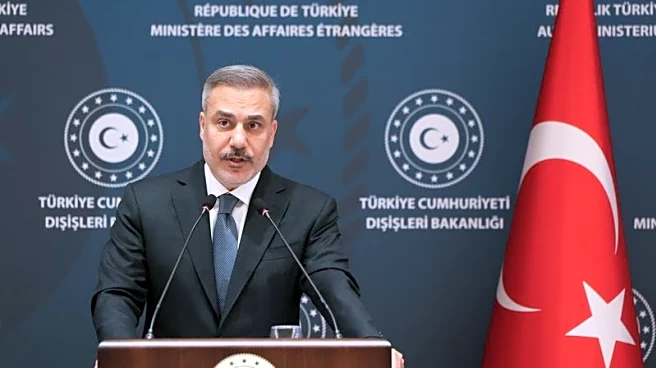What's Happening?
Israeli President Isaac Herzog has reportedly engaged with families of captives, urging them to support a potential pardon for Prime Minister Benjamin Netanyahu. This comes as Netanyahu faces three separate
criminal cases, which he has denied. Herzog's discussions with the families occurred before a ceasefire in Gaza, with some families considering the pardon as a means to facilitate a hostage exchange deal. Herzog's office confirmed the discussions but stated the initiative originated from the families.
Why It's Important?
The potential pardon for Netanyahu is significant as it could influence the political landscape in Israel, affecting public opinion and the ongoing legal proceedings against the Prime Minister. The discussions highlight the complexities of balancing legal accountability with political and humanitarian considerations. A pardon could impact Netanyahu's political future and the stability of the Israeli government, while also affecting international perceptions of Israel's judicial system.
What's Next?
The situation may lead to further political negotiations and public debate over the appropriateness of a pardon for Netanyahu. The decision could influence upcoming elections and the broader political climate in Israel. Stakeholders, including political leaders and civil society groups, may react to the potential pardon, shaping the discourse around legal accountability and political leadership.
Beyond the Headlines
The discussions raise ethical questions about the use of pardons in political contexts and the influence of personal relationships on legal decisions. The situation underscores the challenges of maintaining judicial independence while navigating political pressures. It may also affect Israel's international relations, particularly with countries monitoring the trial and its implications for governance and rule of law.










